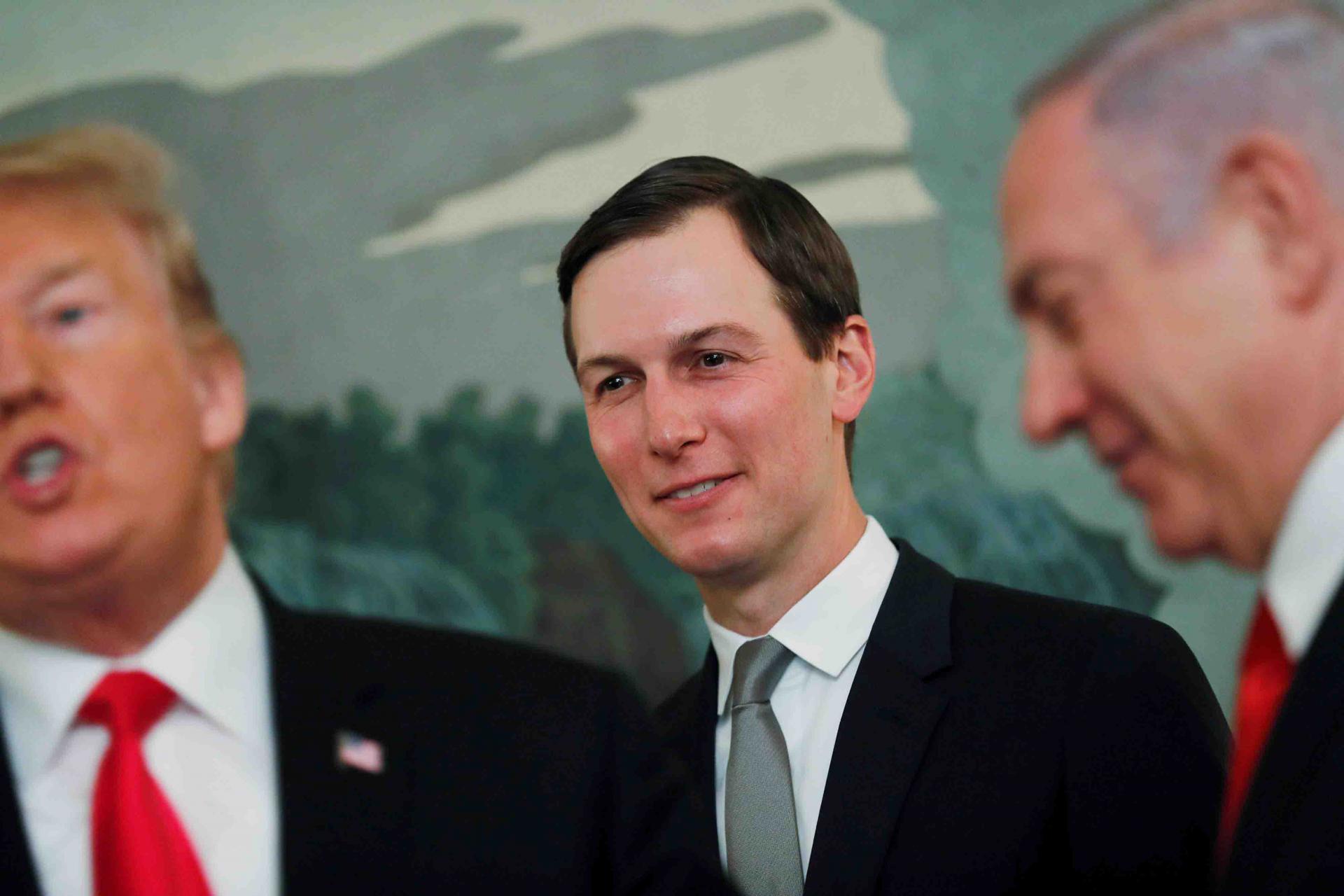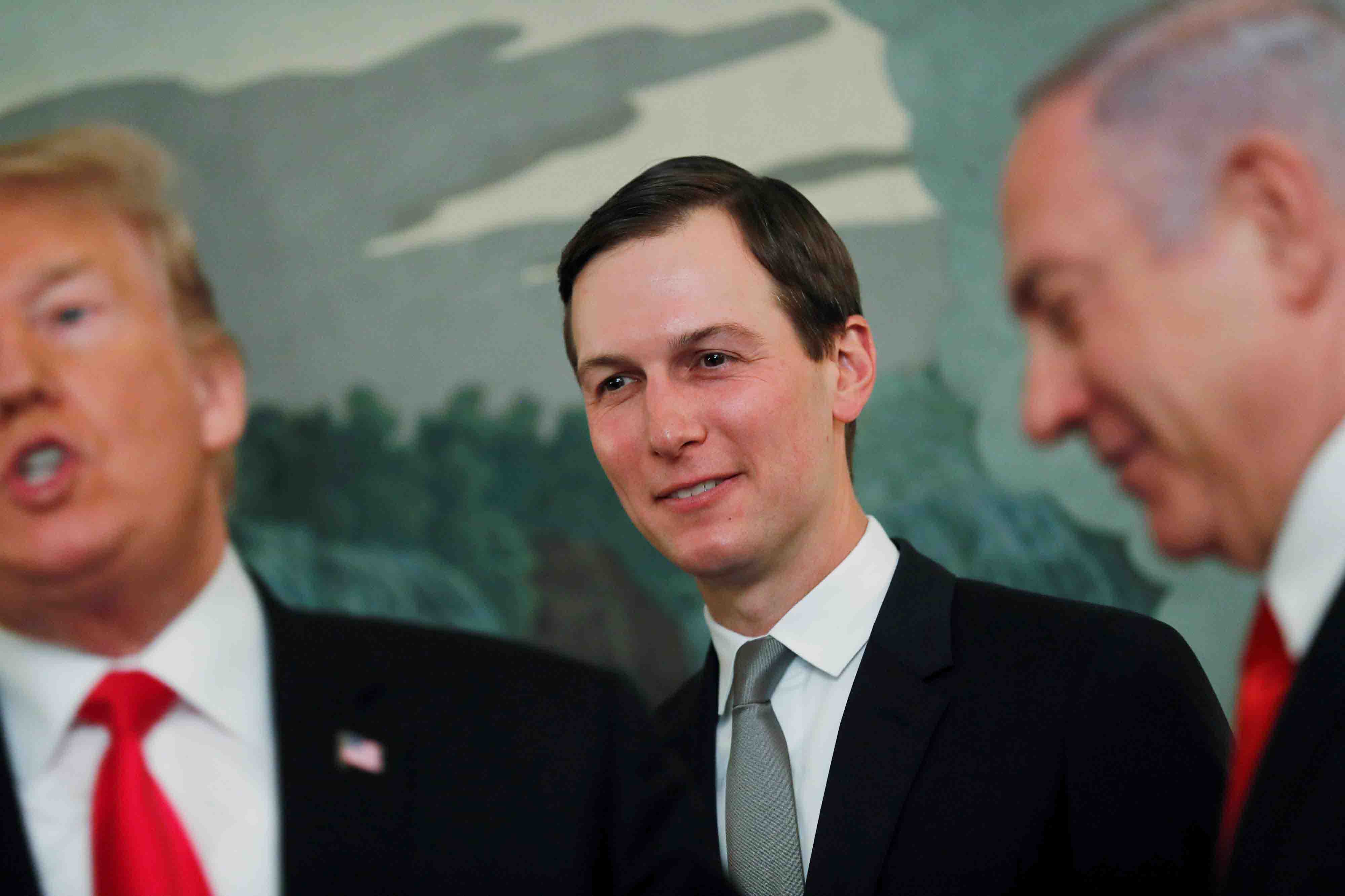US peace plan comes unglued over Israel’s election rerun
WASHINGTON — Israel’s stunning announcement calling for snap elections may affect plans for the rollout of the Trump administration’s so-called “Deal of the Century” on Middle East peace.
While US President Donald Trump’s son-in-law and adviser Jared Kushner travelled to Israel May 30, ostensibly to promote the plan, there’s no government there to which to pitch.
Should anyone but Binyamin Netanyahu be elected Israeli prime minister in the next go-round, the landscape could change considerably as far as support for the Trump administration and its peace plan goes in Israel.
Because Netanyahu was unable to form a government by May 29, parliament was dissolved and new elections are expected to take place September 17, long after an economic meeting in Manama in June.
Announcing an unpopular peace plan could affect Netanyahu’s re-election possibilities and not announcing it could cut into next year’s US presidential elections.
Some said it was a good news/bad news event. David Makovsky, director of the Programme on the Middle Eastern Peace Process at the Washington Institute of Near East Policy, said on Twitter that, on the good side, it provides an out for not providing the political aspects of the peace plan yet.
Administration officials said they intend to announce financial aspects but no further details about the peace plan at an economic workshop June 25-26 in Bahrain. The workshop is meant to raise money for Palestinian investment and infrastructure.
The bad news, he said, is that it’s “out of sync” with the US election cycle.
Kushner visited Morocco, Jordan and Israel to promote the plan. Neither Morocco nor Jordan said whether they officially support the US plan or the Bahrain meeting. Saudi Arabia and the United Arab Emirates have said they would send representatives to the economic workshop.
Kushner met with Netanyahu May 30.
“This is a rookie mistake,” tweeted Martin Indyk, a distinguished fellow at the Council on Foreign Relations and former US special envoy for US Israeli-Palestinian negotiations. “Everybody in Israel and the Arab world would understand if they skipped Israel on this trip. No one, especially Netanyahu, has time to talk peace in this chaotic situation.”
After a May 29 meeting with Jordanian King Abdullah II, Jason Greenblatt, US special representative for international negotiations, said it went well.
“Constructive meeting with [King Abdullah] in Jordan today including a good conversation about regional dynamics and our administration’s efforts to help Israel and the Palestinians achieve a brighter future,” he posted on Twitter.
Greenblatt had previously criticised Palestinians not interested in attending the meeting in Bahrain.
“As most of us know, some Palestinians are open-minded & willing to give us a chance while others, unfortunately, can’t afford to be as open/have been intimidated to avoid our workshop,” Greenblatt tweeted May 23. “Ultimately, the choice to contribute is theirs & of course the opportunity is theirs to lose.”
Amir Tibon, a reporter with Haaretz, has questioned before why Trump would offer Netanyahu so much — the move of the US embassy to Jerusalem, sovereignty over the Golan Heights and support during his elections — without asking for anything in return. On June 30, he wondered what Trump would offer before the new elections.
“Trump did everything to help Netanyahu,” Tibon said on Twitter. “He delayed his own peace plan by six months, recognised the Golan as part of Israel, praised [Netanyahu] and even blatantly interfered in Israel’s coalition negotiations just this week. And it was not enough. What will he give [Netanyahu] in the rematch?”
On May 27, Trump sent a clear message of support to Netanyahu.
“Hoping things will work out with Israel’s coalition formation and [Netanyahu] and I can continue to make the alliance between America and Israel stronger than ever,” Trump tweeted.
“A lot more to do!”
The plan, which hasn’t been released, has received a tepid response. The Palestinians have refused to participate without seeing it and several countries, including Russia and China, said they would not participate in the economic meeting in Bahrain.
The White House announced that US national security adviser John Bolton, Israeli national security adviser Meir Ben-Shabbat and Secretary of the Security
Council of Russia Nikolai Patrushev would meet in Jerusalem in June to talk about Middle East security issues.
Kelly Kennedy is an Arab Weekly correspondent in Washington.
Copyright ©2019 The Arab Weekly — distributed by Agence Global







